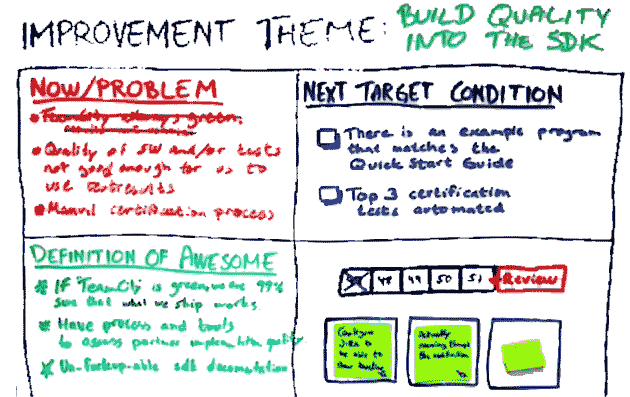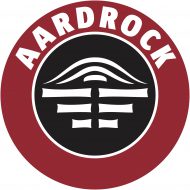
Henrik Kniberg says that Squads at Spotify are using Big Visible Improvement Boards that focus on one to three Actionable Accelerators like:
- “What is blocking us?”
Also, the board shows a Definition of Awesome that includes things like:
- Really finishing stuff.
- Easily ramping up new team members.
- No recurring tasks or bugs.
Beyond that, the Definition of Awesome Architecture makes explicit:
- I can build, test, and ship my feature within a week; and
- I use data to learn from it; and
- My improved version is live in week two.
Awesome is a direction, not a place, so it does not even have to be realistic. The Squads use a Definition of Awesome to help focus improvements and track progress.
The Improvement Board is inspired by a technique called Toyota Kata, showing:
- ”’current situation”’;
- ”’target situation”’ in the form of a Definition of Awesome telling a little story about the perfect world;
- ”’realistic next target condition”’ that is one step closer to awesome; and
- ”’next three steps”’, actions that take you to the ”’realistic next target condition”’;
- when these get done, the Squad fills them up with new improvement actions;
- this section also shows a little week calendar.
The Improvement Board is very similar to an A3 Solver, a pattern or Pearl, and the general Beyond Bullet Points structure.
Source: Spotify Engineering Culture » Part 2.
